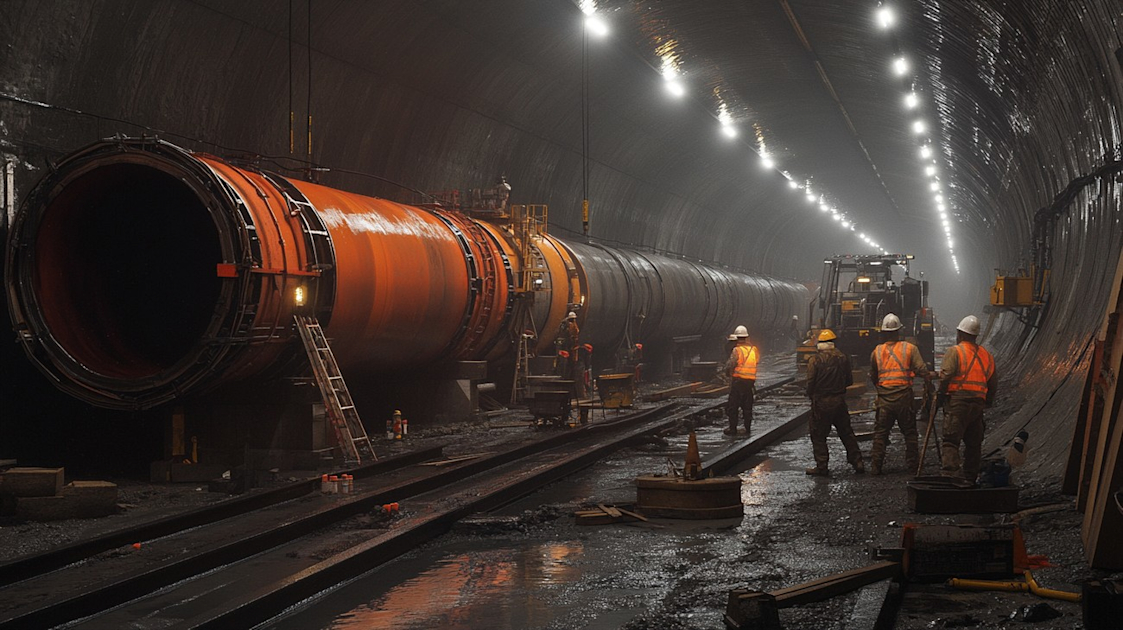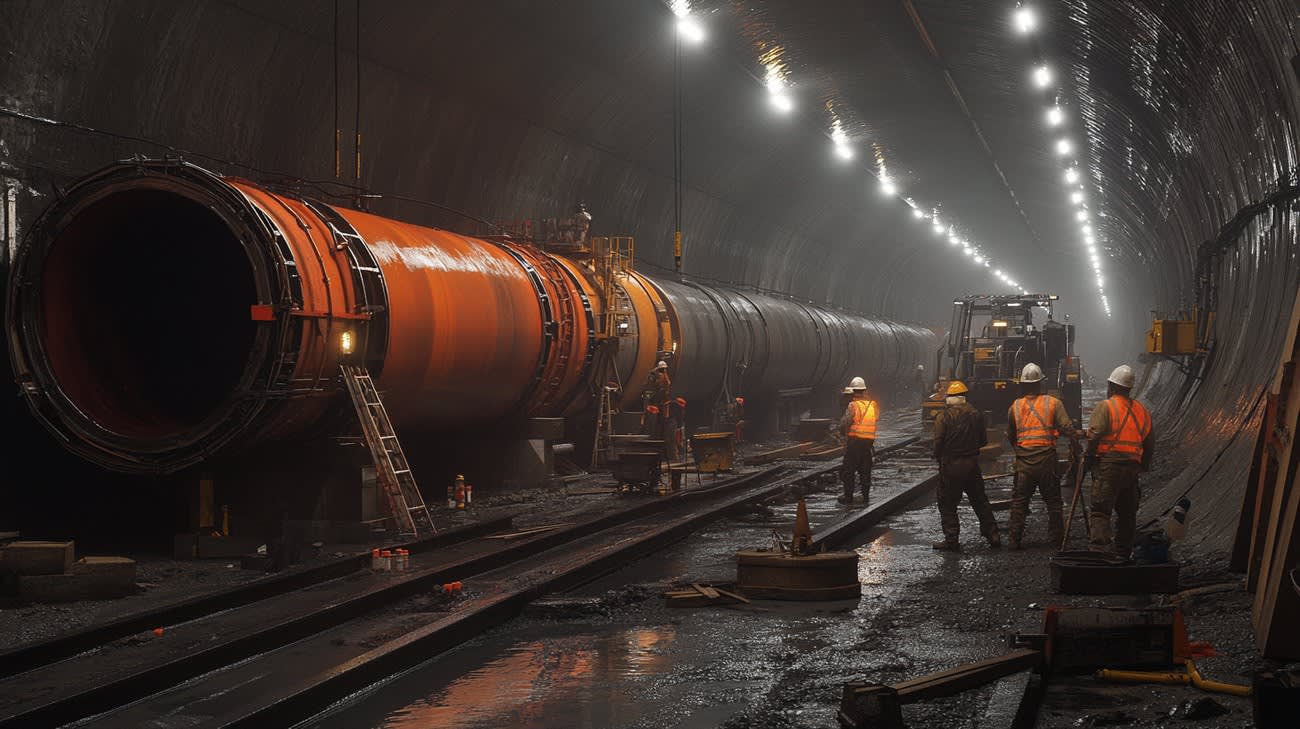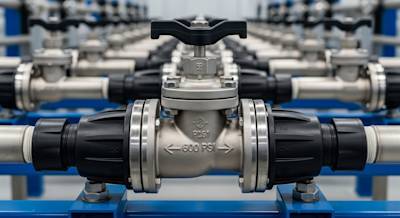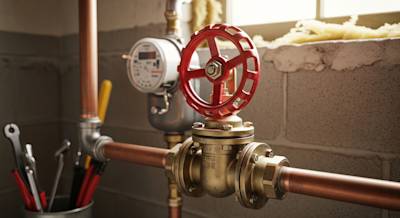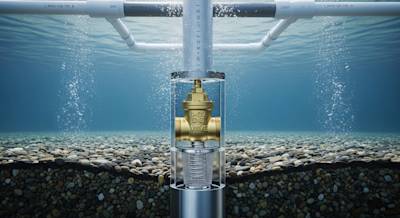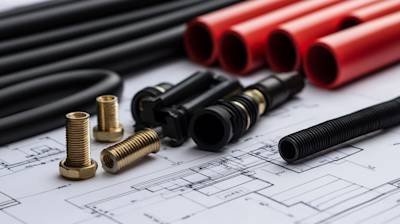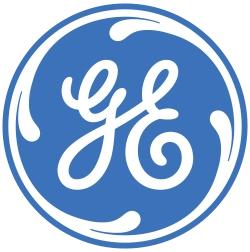Sewer systems are integral to the functionality of our homes and our communities. Out of sight, but definitely not out of mind, they require constant management and regular maintenance to function optimally. Should something go wrong, a sewer system repair promptly is essential. Today, we'll peel back the layers of the process, costs involved, methods employed, and signs that indicate a need for repair.
Signs That Sewer System Repairs Are Necessary
Right off the bat, understanding the signs of a potential problem can save you from costly repairs in the future. It is important to know the red flags so you can intervene before a small issue spirals out of control. Here are some signs to be on the lookout for:
- Frequent Drain Clogs: Frequent or stubborn clogs may point towards a deeper problem in your sewer system.
- Unpleasant Odors: An obvious symptom of a sewer issue is the smell of sewage either in your home or your yard.
- Slow Draining: Drains may slow down due to blockages or breaks in the sewer line.
- Sewage Backups: The most serious and clear sign of sewer trouble is when sewage backs up into your home.
With these in mind, remember to maintain regular check-ups of your sewer line, which can help in early detection and fixing minor problems before they escalate.
Understanding the Process of Sewer System Repair
It begins with a thorough inspection by professionals. They employ advanced tools and technologies such as CCTV cameras on flexible rods to get a real-time view of what's going on inside the pipes. Through these inspections, they can spot the exact location and nature of damage or blockage.
This progress leads to making appropriate decisions about the next steps. Sewer system repairs can be either traditional, which requires replacement of the damaged pipe, or trenchless, a newer and less invasive technology that replaces, lines, or breaks up the problematic pipe without digging up your whole yard.
Traditional Sewer Repair
Traditional sewer repair typically involves excavating around the home to access the sewer line, removing the damaged section, and replacing it with a new one. This method, although effective, can be disruptive and often leads to landscape or structure damage.
Trenchless Sewer Repair
Trenchless repair, on the other hand, involves either pipe lining or pipe bursting.
Pipe Lining: Involves creating a pipe within a pipe to restore normal function. A flexible tube coated with resin is inserted into the damaged pipe and inflated. The resin then hardens, creating a pipe within the original pipe.
Pipe Bursting: Involves pulling a new pipe through the old one, simultaneously fracturing the old pipe outward. This method is generally used when the existing pipe is too damaged for pipe lining.
Estimating Sewage System Repair Cost
The cost can vary based on several factors: extent of damage, repair method, pipe material and local labor rates. Generally, traditional sewer line repairs can range from $50-$150 per foot, while trenchless sewer line repair can range from $60-$200 per foot. It's essential to get multiple quotes from professionals in your area to ensure a fair price.
Frequently Used Pipe Materials in Sewer Systems
For sewer system repair, the pipe's material is crucial to consider as it affects durability, cost, and environmental impacts. Here are the most commonly used materials in sewer lines:
- Clay
- Cast Iron
- PVC (Polyvinyl Chloride)
- ABS (Acrylonitrile Butadiene Styrene)
- HDPE (High-Density Polyethylene)
Each material comes with its own advantages and challenges in terms of weight, durability, cost, and eco-friendliness. A professional can guide you to the material best suited for your situation and local regulations.
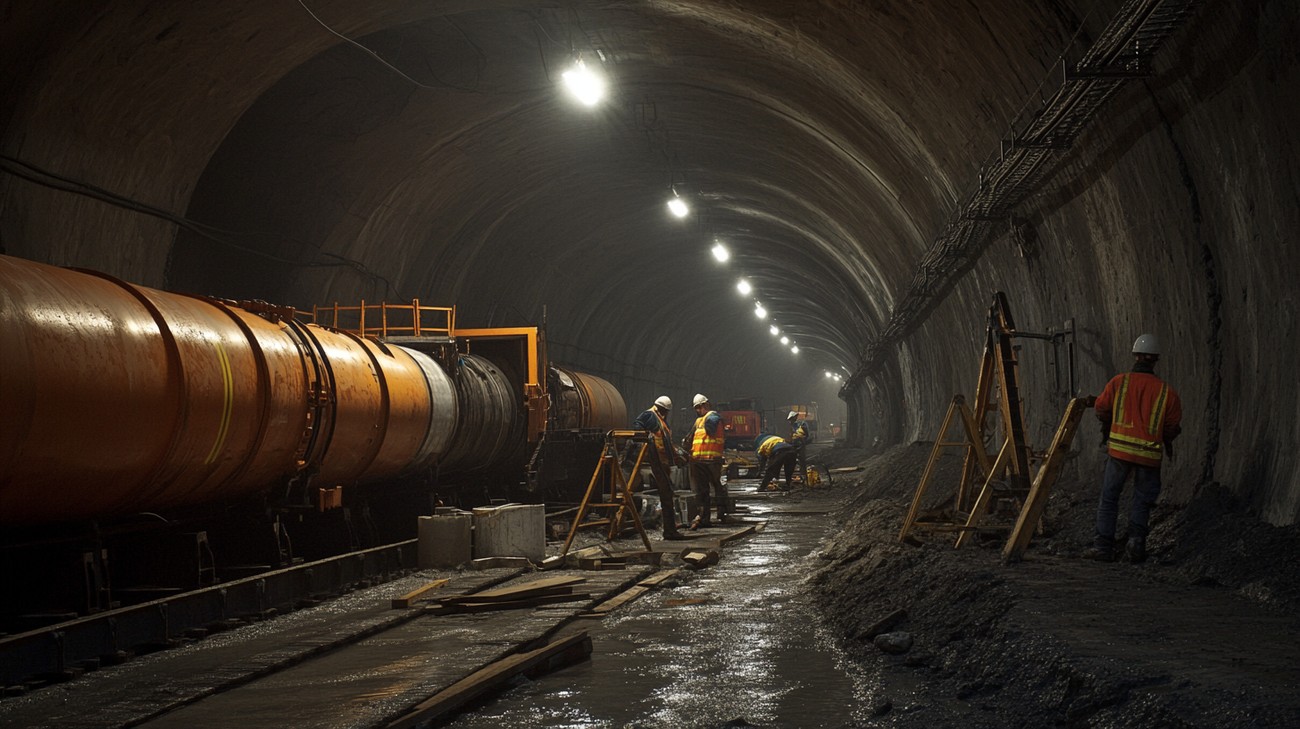
Frequently Asked Questions about Sewer System Repair
How Do I Know If My Sewer System Needs Repair?
The signs that a sewer system needs repair can range from the obvious to the subtle. The most common indications are recurring drain backups or blockages, foul odors emanating from the drains, and pooling of water in unusual areas. Other warning signs can be slow drainage, gurgling sounds from your plumbing, or unexplained increases in your water bill.
What Are the Different Sewer Repair Processes?
There are several different processes that a plumber or sewer repair professional could use to address sewer system repairs. Traditional repairs, pipe relining, pipe bursting, and trenchless sewer repair are all options. The approach chosen depends on the specific issue at hand, the type of sewer pipes you have, and your property's layout.
Is Trenchless Sewer Repair Better Than Traditional Methods?
In many cases, trenchless sewer repair can offer a number of benefits over traditional methods. It often causes less damage to your property as it doesn't involve digging up large sections of your yard. It can also be quicker and more cost-effective in the long run. However, it may not be suitable for very old or damaged systems.
How Long Does Sewer System Repair Take?
The time taken for sewer system repair can vary widely based on the issue and the repair method. A simple clog might be fixed within a few hours, while a complete system replacement could take several days. Speak with your sewer repair professional to get an accurate time frame for your particular situation.
Can a Damaged Sewer System Affect My Health?
Yes, it absolutely can. A damaged sewer system can lead to the exposure of harmful pathogens that can cause serious health issues, such as gastrointestinal diseases and infections. Foul odors can also lead to headaches and nausea. It's important to get any suspected damage repaired promptly to avoid health risks.
Who Is Responsible for Sewer Line Repairs?
Typically, responsibility for sewer line repairs depends on the location of the damage. The portion of the sewer line that runs from your home to the property line is generally your responsibility as a homeowner. Damage or clogs in the city's sewer line are usually the municipality's responsibility.
How Can I Prevent the Need for Sewer System Repairs?
Regular maintenance is the best preventative measure against the need for sewer system repairs. This includes having your sewer system professionally inspected on a regular schedule, avoiding flushing unfriendly items down the drains, and keeping an eye out for any changes or signs of trouble.
What Is the Cost of Sewer System Repair?
Multiple factors influence the cost of sewer system repair, including the type of repair required, the materials involved, and the extent of the damage. Repair costs could range from a couple hundred dollars for minor issues to several thousand for a full sewer line replacement. Always ask for an estimate before committing to a service.

Pros of Sewer System Repair
Enhanced Public Health
Mitigates Health Risks
The primary purpose of a sewer system is to facilitate the hygienic and efficient disposal of wastewater. Over time, sewer lines can become damaged due to roots growing through pipes, blockages, natural aging and other unforeseeable factors. The repair of these sewer systems can help to eliminate potential health hazards caused by sewage leaks and overflowing toilets, ultimately enhancing the overall public health.
Decreases Mosquito Breeding Grounds
When sewer systems overflow due to a lack of maintenance, they often create puddles of stagnant water. These pools are prime spots for mosquitoes to lay their eggs, increasing the risk of infections spread by insect bites, like the West Nile and Zika viruses. Repairing and maintaining sewer systems ensure these bodies of stagnant water are minimized, reducing the opportunities for mosquitoes and other pest infestations.
Cost-Effective
Long-term Cost Saving
While the immediate cost of sewer system repair may be significant, it is a sensible and necessary investment. Sewer system repair or replacement averts disasters that result in extensive destruction and exorbitantly high costs. Thus, over time, the cost of consequent damages considerably outweighs the upfront price of sewer system repair.
Environmental Conservation
Decreased Pollution
Leaks or seepage from damaged sewers can cause ground or surface water pollution, affecting aquatic life negatively and reducing water quality. Regular repair of these sewer systems ensures that potential leaks are detected and fixed as soon as they occur, thereby minimizing contamination and promoting clean water ecology.
Resource Re-use
Modern rehabilitation methods for sewer systems allow for most of the existing structure to be used during repair. This practice helps conserve resources and reduce the unwanted ecological impacts associated with excavating and replacing whole pipe systems.
Cons of Sewer System Repair
Financial Implications
High Upfront Costs
One of the most daunting aspects of sewer system repair is the upfront expenditure. Depending on the thickness, material, and depth of the pipelines, as well as the method used for repair, costs can be substantial. If finances are limited, municipalities often have to prioritize other projects over sewer system repair.
Inconvenience
Disruption of Services
Depending on the type and extent of damage, the repair of sewer systems can lead to short-term disruptions in services. In extreme cases, residents may have to make arrangements to have waste disposed of or temporarily relocate until the repairs are complete.
Environmental Disruption
Landscape Damage
In certain situations, sewer system repair may require significant digging and excavation, especially for older sewer lines. This process can result in damage to landscapes, sidewalks, and driveways. It might take a considerable amount of time and resources to restore these areas post-repair.
Environmental Hazards
In the instance where contaminated material is unearthed during sewer system repair, there is a risk that workers or the general population may be exposed to hazardous substances. Although this is rare and contingent upon preexisting conditions, it still remains a plausible risk.
Time-Intensive
Long Repair Time
Just as with the financial aspect, time is a significant factor when it comes to sewer system repair. Minor repairs could take a few days, while major problems can take weeks or even months to resolve. Problems of this magnitude usually call for a temporary alternative sewerage solution, which can also add to the overall cost and inconvenience.
Technical Challenges
Locating Damage
Identifying the precise location of damage in a sewer system can be challenging. Modern methods such as video inspection can certainly help but don’t always deliver foolproof results, particularly in complex systems.
Access Difficulties
There might also be physical constraints to accessing the sewer pipes, especially if the pipes are positioned under large structures or if they pass under natural features such as water bodies. This adds to the complexity of the repair process, requiring more innovative and often expensive solutions.

Myths / Misconceptions about Sewer System Repair
Sewer system repair is a critical service that helps protect public health and the environment. However, there are several myths surrounding sewer system repair that can lead to misconceptions and bad decisions. This article aims to dispel these myths and give a clearer picture of what sewer system repair entails.
Myth 1: Sewer System Repair is only Done when there is a Full Blockage
Reality: Preventative Maintenance is Key
Many people believe that sewer repairs only occur when there is a severe problem, such as a full blockage. However, sewer system repair can also involve preventative maintenance to avoid larger issues down the line. Regular inspections and snaking of sewer lines can decrease the likelihood of major blockages or pipe collapses.
Myth 2: Sewer Repairs are Always Expensive
Reality: Cost Depends on the Level of Damage
This myth can deter homeowners from seeking professional help, fearing high costs. While some sewer repairs may be costly, the cost really depends on the severity and location of the damage. Minor repairs, when addressed promptly, can be relatively affordable. Delaying minor repairs, however, can lead to more severe damage and therefore higher costs.
Myth 3: DIY Fixes are Sufficient
Reality: Professional Expertise is Necessary
While DIY solutions may seem appealing due to perceived cost savings, these solutions may not permanently solve the problem. Sewer system repair often requires specialized tools and expertise that the average homeowner may not have. A professional can correctly diagnose the problem and offer long-term solutions.
Myth 4: All Sewer Repair Methods are the Same
Reality: Different Problems Require Different Solutions
There are many different types of sewer system repairs such as pipe lining, pipe bursting, and traditional dig-and-replacement methods. The chosen method will depend on factors such as the severity of the problem, the location and condition of the sewer line, and local code requirements.
Myth 5: Newly Constructed Homes Don't need Sewer Repair
Reality: Even Newer Homes can Experience Issues
While newer homes may have less chance of having sewer issues due to more modern construction practices and materials, problems can still arise. Sewer lines can be damaged by a variety of things, including tree roots, ground movement, or even construction errors.
Myth 6: Sewer Gases Smell Bad but are not Harmful
Reality: Sewer Gases can be Dangerous
Sewer gases do not only smell bad; they can also pose a serious health risk. They can contain methane, which is potentially explosive, and hydrogen sulfide, which can cause severe health problems at high concentrations. Preventing sewer gas leaks is one of the reasons why maintaining your sewage system is so important.
Myth 7: Sewer Repair is the Homeowner's Responsibility
Reality: Responsibility can Vary
Many people believe the homeowner is entirely responsible for the sewer line, but the reality is that the responsibility can vary depending on the location of the damage. Generally, homeowners are responsible for the portion of the sewer line that runs from their home to the property line. Anything beyond that is typically the responsibility of the city or municipality.
By debunking these myths, we hope to remove fear and hesitation about sewer system repairs, ultimately ensuring healthier homes and environments.
Summary
So, fixing a sewer system isn't as straightforward as it might seem. It's not really a DIY project and requires specialized knowledge and equipment. This is mainly due to the complexity and size of these systems. Therefore, calling in the professionals is always the smart call when it comes to sewer system repair.
Sewer system repair is one of those tasks that is best left to the experts. Not only can they properly diagnose the problem, but the right tools and expertise can save you time and potential mistakes. Of course, the goal is to minimize the disruption to your home and your daily routine, which professional service often ensures.
And there you have it; sewer system repair is not a job that you want to tackle on your own. Hiring a professional is the safest, fastest, and most efficient option available. Remember, regular checks can help prevent large scale issues, so it is highly recommended to stay on top of things and not ignore any potential problems. Stay proactive out there!
About KYPD Plumbing
KYPD Plumbing is your friendly neighborhood expert based in beautiful Lexington, KY. We've been going strong since our establishment, providing top-notch plumbing solutions to home and business owners alike. Specializing in a comprehensive range of services, from small repairs to complete renovations or installations, we are the reliable plumbing professionals you can trust! With KYPD, you're not just hiring a plumber, you're partnering with caring individuals dedicated to solving your plumbing issues and ensuring your comfort and safety. We treat everyone like family, because here at KYPD Plumbing, you're not just another customer - you're part of our community.
Tags: plumbing, maintenance, sewage,

